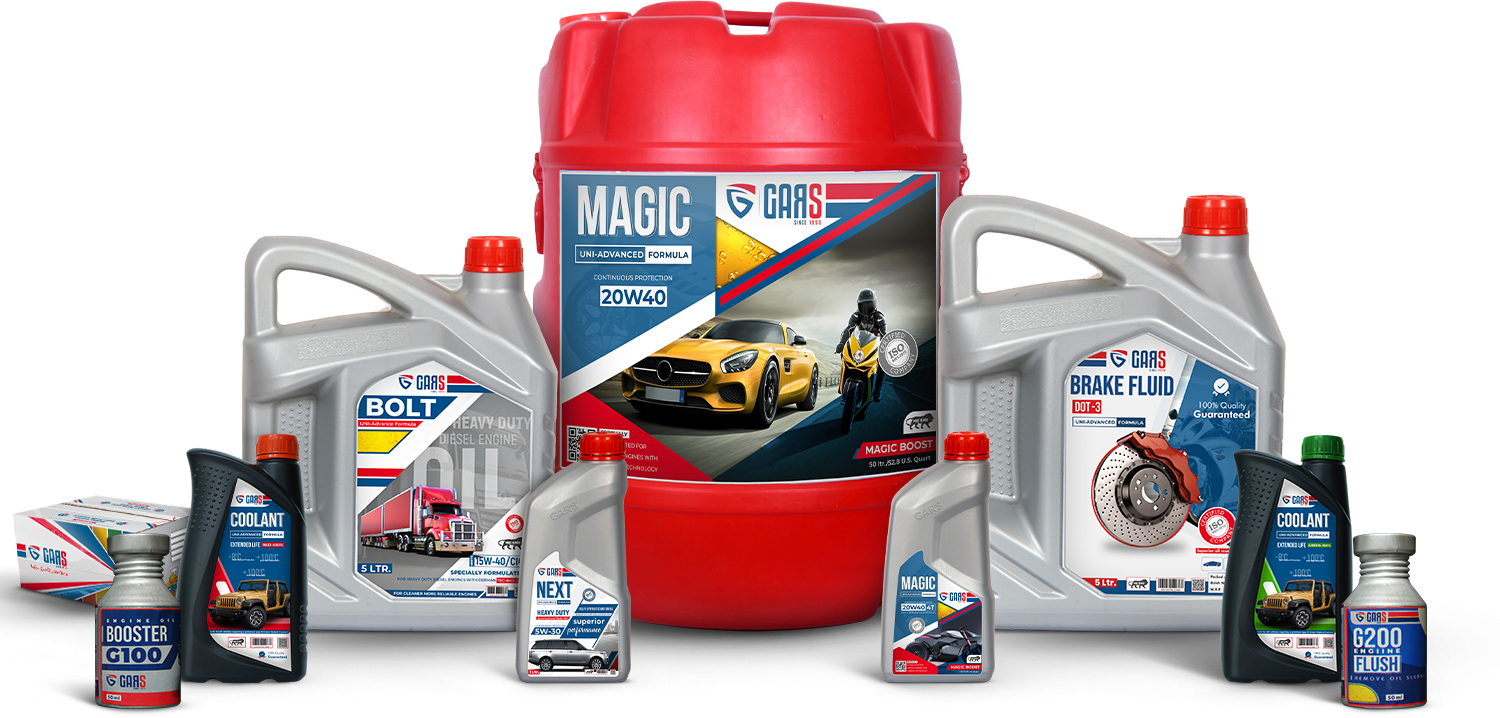Automotive Lubricants: The Lifeline of Vehicle Performance

Every vehicle, whether a small car, a heavy truck, or a motorcycle, depends on proper maintenance to perform efficiently and safely. Using automotive lubricants is one of the most crucial—yet sometimes disregarded—aspects of car maintenance. These specialized fluids reduce friction, protect engine parts, and ensure smooth functioning of different components. In this blog, we will explore what Automotive Lubricants are, their types, functions, and why they are essential for the longevity and performance of your vehicle.
What are Automotive Lubricants?
Automotive Lubricants are specially formulated fluids that reduce friction and wear between moving parts inside a vehicle. They are used in engines, transmissions, gearboxes, differentials, and other mechanical systems. In addition to reducing friction, these lubricants perform several other vital roles such as cooling, cleaning, and protecting internal components from corrosion and damage.
Without proper lubrication, metal parts would grind against each other, causing excessive heat, premature wear, and eventual failure of the components.
Functions of Automotive Lubricants
Automotive Lubricants serve multiple important functions in any vehicle:
1. Friction Reduction
By creating a thin protective layer between moving parts, Automotive Lubricants minimize metal-to-metal contact, reducing friction and wear.
2. Cooling
To keep the parts from overheating, automotive lubricants aid in the absorption and dissipation of this heat.
3. Cleaning
Lubricants collect and suspend contaminants like dirt, metal particles, and combustion by-products, preventing the buildup of sludge and deposits.
4. Corrosion Protection
Moisture and chemical by-products can cause rust and corrosion inside the engine and other components. Automotive Lubricants protect surfaces by forming a barrier that prevents corrosion.
5. Sealing
In engines, lubricants help seal gaps between piston rings and cylinder walls, ensuring proper compression and preventing leaks.
Types of Automotive Lubricants
There are several types of Automotive Lubricants, each designed for specific parts of a vehicle:
1. Engine Oil
Engine oil is the most common type of Automotive Lubricants. It lubricates the engine's moving parts, keeps it clean, cools it down, and protects against corrosion. Engine oils are available in:
-
Mineral Oil: Suitable for older engines, this product is made from refined crude oil.
-
Synthetic Oil: Chemically engineered for better performance, stability, and longer life.
-
Semi-Synthetic Oil: A blend of mineral and synthetic oils, offering a balance between performance and cost.
-
High-Mileage Oil: Formulated for older engines with higher mileage.
2. Transmission Fluid
Transmission fluid lubricates the gears and moving parts inside the transmission system, ensuring smooth gear shifts and reducing wear. It also helps with cooling and cleaning.
3. Gear Oil
Gear oil is used in the differential and gearbox. It is thicker than engine oil and provides the necessary protection for gears operating under high pressure and load.
4. Brake Fluid
Although not a lubricant in the traditional sense, brake fluid is essential for transferring force in hydraulic braking systems while protecting components from corrosion.
5. Coolant (Antifreeze)
Coolant regulates the engine's temperature by dissipating heat and preventing freezing or boiling. It also contains additives to protect the cooling system from corrosion.
6. Greases
Greases are thicker lubricants used for wheel bearings, chassis parts, and other components where liquid lubricants are not practical.
Importance of Using the Right Automotive Lubricants
Using the correct Automotive Lubricants offers numerous benefits:
-
Enhanced Performance: Proper lubrication allows all moving parts to operate smoothly and efficiently.
-
Extended Component Life: Reduces wear and tear, prolonging the lifespan of engine and transmission components.
-
Fuel Efficiency: Reduced friction results in better fuel economy.
-
Lower Maintenance Costs: Prevents major mechanical failures and reduces the frequency of repairs.
-
Safety: Well-lubricated components perform reliably, contributing to overall vehicle safety.
When to Change Automotive Lubricants
Regular replacement of Automotive Lubricants is crucial for maintaining vehicle health:
-
Engine Oil: Usually every 5,000 to 10,000 kilometers, depending on the oil type and driving conditions.
-
Transmission Fluid: Every 40,000 to 100,000 kilometers as recommended by the manufacturer.
-
Gear Oil: Typically every 30,000 to 60,000 kilometers.
-
Brake Fluid: Every 2 years or as specified by the manufacturer.
-
Coolant: Every 2 to 5 years depending on the coolant type.
Always refer to the vehicle owner’s manual for specific maintenance intervals.
Common Myths About Automotive Lubricants
Myth 1: Thicker oil offers better protection.
Using oil with higher viscosity than recommended can reduce lubrication efficiency and lead to increased wear, especially during cold starts.
Myth 2: You don’t need to change synthetic oil often.
Even synthetic oils degrade over time and need to be replaced as per the manufacturer’s guidelines.
Myth 3: All lubricants are the same.
Each type of Automotive Lubricants is designed for a specific function. Using the wrong lubricant can cause damage to vehicle components.
Conclusion
Automotive Lubricants are the lifeblood of any vehicle’s engine, transmission, and other critical systems. They ensure smooth operation, reduce wear, enhance performance, and extend the life of the vehicle. Understanding the role and importance of each lubricant type helps in making informed decisions when it comes to vehicle maintenance. Always follow the manufacturer's recommendations and schedule regular lubricant changes to keep your vehicle running efficiently for years to come. Choosing the right engine oils in India is essential for ensuring smooth engine performance and long-term reliability.
- Art
- Causes
- Crafts
- Dance
- Drinks
- Film
- Fitness
- Food
- Games
- Gardening
- Health
- Home
- Literature
- Music
- Networking
- Other
- Party
- Religion
- Shopping
- Sports
- Theater
- Wellness
- Script
- App
